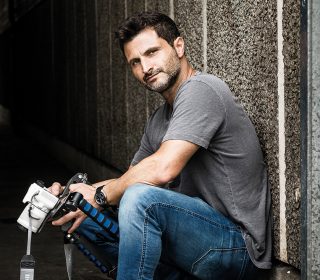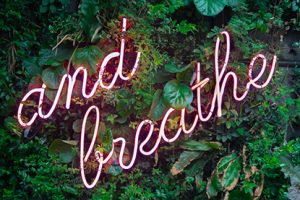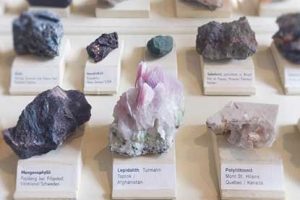Who is the real Idris Elba?
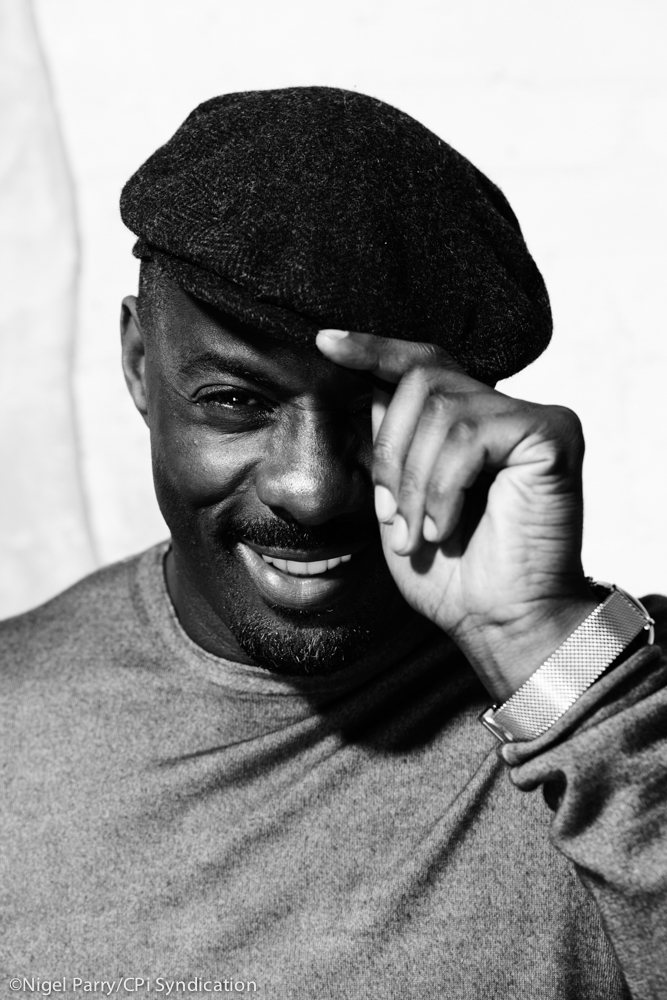
The Number 78 bus stop on Peckham Hill Street, SE15 isn’t normally a place you’d associate with ‘living the dream’.
But there, just in front of the library and opposite Burger King, a vast row of super-sized portraits of 30 famous, black Londoners stare imposingly out over the frazzled commuters, who beat the daily grind to work. Called Underexposed, this street art installation is like a Mount Rushmore of black London luminaries – and there, in all its glory, is its Abraham Lincoln: Idris Elba.
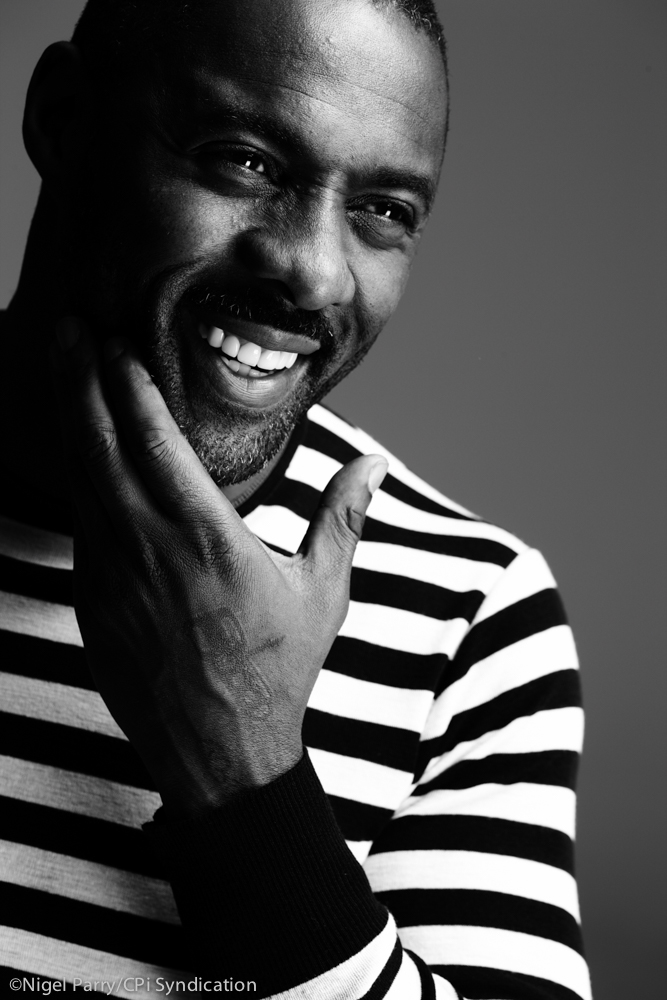
Underneath his looming portrait a quote reads: ‘Honesty is one of the few absolutes in my life’. Commuters – me included – sometimes nod at Idris, pose for selfies, or even touch his picture, hoping some of the Idris magic will rub off onto us mere mortals. Why not? Like Idris, we can all have a dream, right?
These images have never once been defaced in an area famed for graffiti and fly posting. There’s too much respect. After all, Idris’ mythical rise from Hackney to Hollywood might be the stuff of legend, but it’s also well-known his formidable Auntie Mae lives around here.
HUMBLE BEGINNINGS
‘I’m not into the whole fame thing,’ he says. ‘I don’t have celebrity friends. I have the same ones I had from when I was a kid and for me, it’s about my family, it’s about my kids, what’s best for them. I would like to make my entire family happy and secure. That’s a lifelong dream of mine: to make them happy.’
There isn’t much Our Boy Idris can’t do. He acts, he writes, he directs, he DJs, he raps, he campaigns for diversity; last year, for fun, he smashed the British land speed record in a £175,000 Bentley. He’s even a great breakdancer. Idris for London Mayor, anyone? Don’t rule it out.
The son of West African immigrants – his mother Eve is from Ghana and his old man, Winston, from Sierra Leone – he grew up in the high-rises of the Holly Street Estate in Hackney, now demolished, but once considered one of the worst estates in London. A young Tony Blair canvassed there, saying of it: ‘People were too scared to open the door.’
Fear didn’t stop Idris. He recalls: ‘It was rough. I got run over once and they drove off. But my parents kept me on the straight and narrow.’
Aged 16, Idris secured a precious £1,500 grant from the Prince’s Trust that paid his way into the National Youth Music Theatre. He says: ‘That would eventually change my life. I came from nothing. The Prince’s Trust made me the man I am today. It is possible to achieve your dreams. I am living proof of that.’ To this day he’s a Prince’s Trust Anti-Crime Ambassador
– inspiring others to reach their goals.
Idris’ boyhood hero was his grandfather, Moses – a sailor and policeman who fired his imagination and sparked a wanderlust
that would help him conquer the world. ‘He died before I was born, but his stories live on in his absence and his achievements guide me spiritually,’ he says. ‘He was a real man. Fearless.’ As soon as he was old enough, Idris had Moses Elba’s name tattooed on his arm: a permanent reminder to never stand still.
After leaving school, Idris had a string of bit-parts in 90s TV shows. Aged 23, he booked a ticket to New York and never looked back. ‘I realised that if I wanted to be all I could be – have starring roles in big dramas – I’d have to go to the US.’ He used his DJing skills
– honed from helping his uncle from age 14 on London’s African wedding circuit
– to pay the bills until he got regular TV work.
BALANCING LEVELS
On-screen, like his acting heroes Marlon Brando and Robert de Niro, Idris is your classic hard nut with a soft centre. Off-screen, he calls himself, ‘spiritual but not religious’. This inner vulnerability means women want to ‘be the one’ to save him, while men see their own flaws and empathise ‘he’s the man’.
Yet Idris scoffs at his sex symbol status. ‘When I wake up in the morning and look in the mirror, I look like s**t,’ he says. ‘I don’t know what everyone else is looking at.’
What this all adds up to is Idris is the ultimate super-provider to his two children: daughter Isan, 13, and son Winston, two.
Here, once again, Idris thanks his roots. ‘My mum and dad both had a couple of jobs. The work ethic was big.’ Above all, fatherhood has ‘been the beating heart of all of it,’ he says. ‘I want both my kids to look up at the old man and go, “Daddy went for it”.’
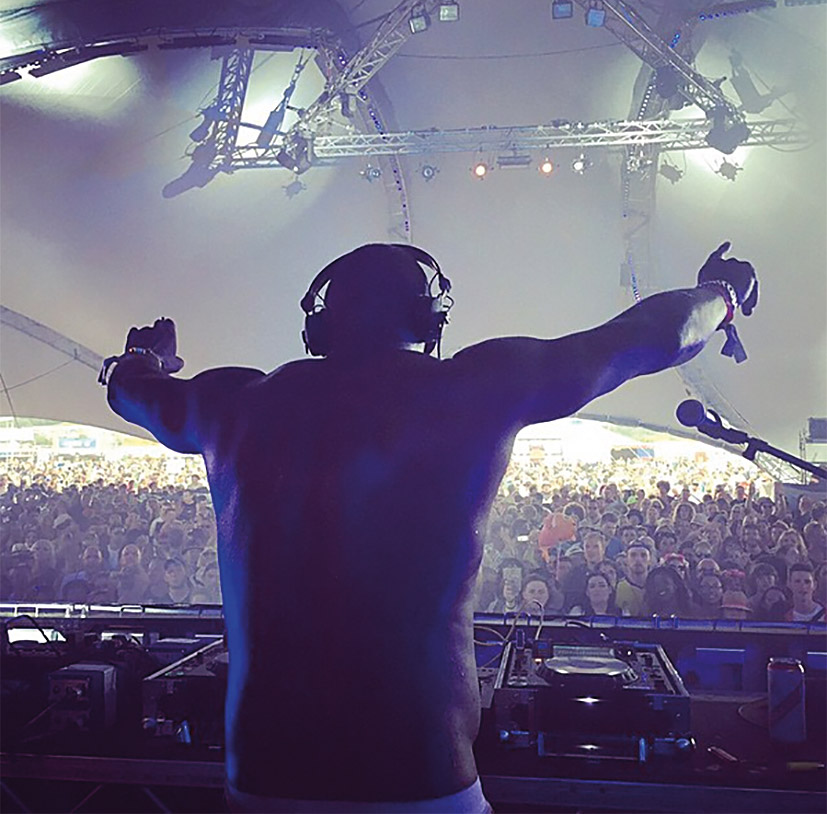
Idris’ personal life hasn’t been without its troubles. ‘No one’s perfect, we all make mistakes but don’t live with regret, it’ll eat you up,’ he says. ‘I don’t feel like a role model, but I guess I speak to people who come from a similar background. They see me and think, “If he can do it, so can I”.’
These days, he no longer DJs for his uncle, but warms up for Madonna in front of thousands of fans as DJ Driis. Music gives Idris a much-needed work/life balance – and keeps him on his toes.
This down-to-earth attitude means Idris will always represent ‘Us’. There was no clearer proof of this than when he delivered an epic speech on diversity in the media to a packed Houses of Parliament in January. Afterwards he tweeted: ‘Parliament: THE most important speech I’ve ever made, no other time has made me realise the torch I hold.’
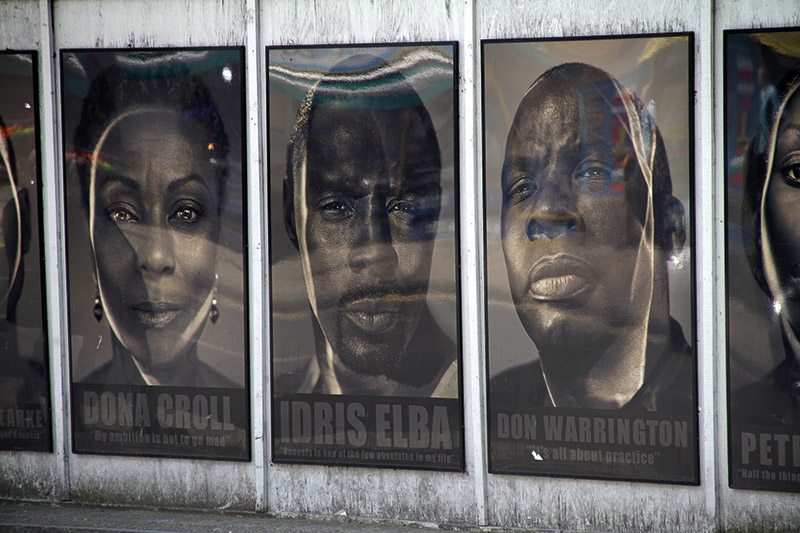
From the drizzly bus stops of Peckham to the dazzling heights of the Hollywood Hills, it’s a torch that burns bright – and lights the path for a million more British Dreamers who know they can make it, if they give it their all, just like Idris Elba did.
MY GRANDFATHER DIED BEFORE I WAS BORN, BUT HIS STORIES AND ACHIEVEMENTS GUIDE ME SPIRITUALLY. HE WAS A REAL MAN. FEARLESS
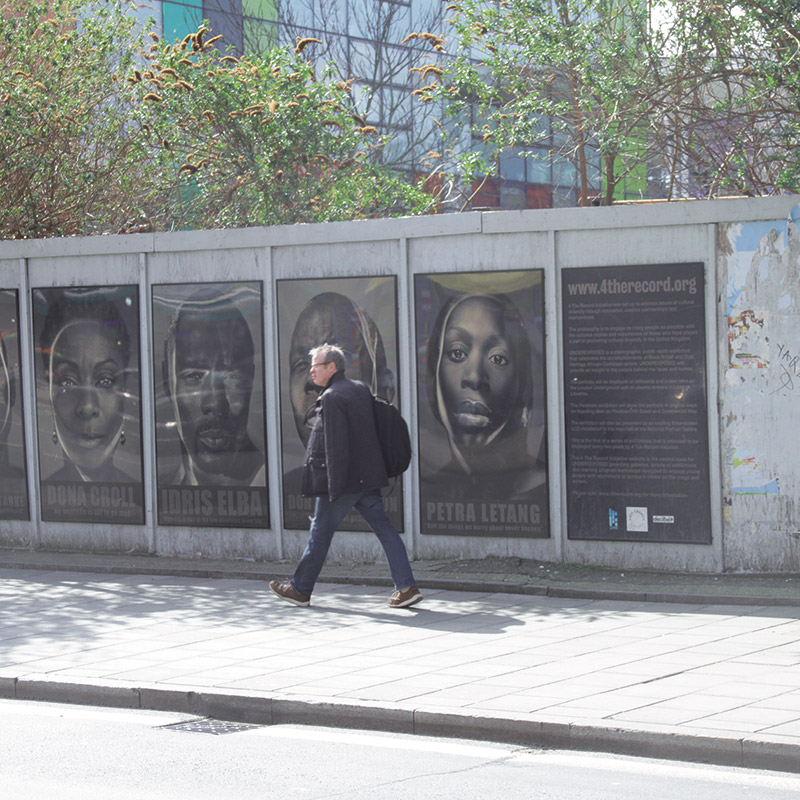
ROLES WITH MEANING
Idris’ acting career propelled him into the spotlight – as well as teaching him a few things along the way…
1. NELSON MANDELA IN THE LONG WALK TO FREEDOM – drove him to help kids
‘I took a new understanding of the word “patience” from playing Mandela. I didn’t want to deface Mr Mandela in any way, but I didn’t want to portray him in a way that wasn’t honest. I’ve done some work with youth, with kids and stuff, but just playing Nelson Mandela
has made me want to do a lot more. I can be a little bit more of a beacon for people who don’t have a voice.’
2. JOHN LUTHER IN LUTHER – the role that ‘saved’ him
‘I put my heart and soul into it. I love John Luther. I played John at a very dark time in my life. And I so love John because I get to exercise; it’s so cathartic, it’s therapy.’
3. STRINGER BELL IN THE WIRE – struggled with the morality of glorifying evil
‘I celebrate the fact that he dies. I have a problem with the glorification of a drug dealer and America is fascinated with that world.’
4. COMMANDANT IN BEASTS OF NO NATION – his most harrowing role
‘I can’t stand seeing children suffer. I watch Toy Story and I start crying, let alone Beasts of No Nation!’



